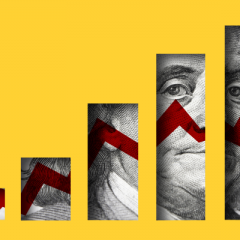CMS: Healthcare Spending Accelerated, Reaching $4.5T in 2022
- US healthcare spending picked back up last year, reaching a total of $4.5 trillion in 2022, according to the latest numbers from CMS. Healthcare spending growth accelerated, growing by 4.1 percent in 2022, the data published in Health Affairs showed. That is faster than the increase of 3.2 percent in 2022 but significantly slower than the rate of...

